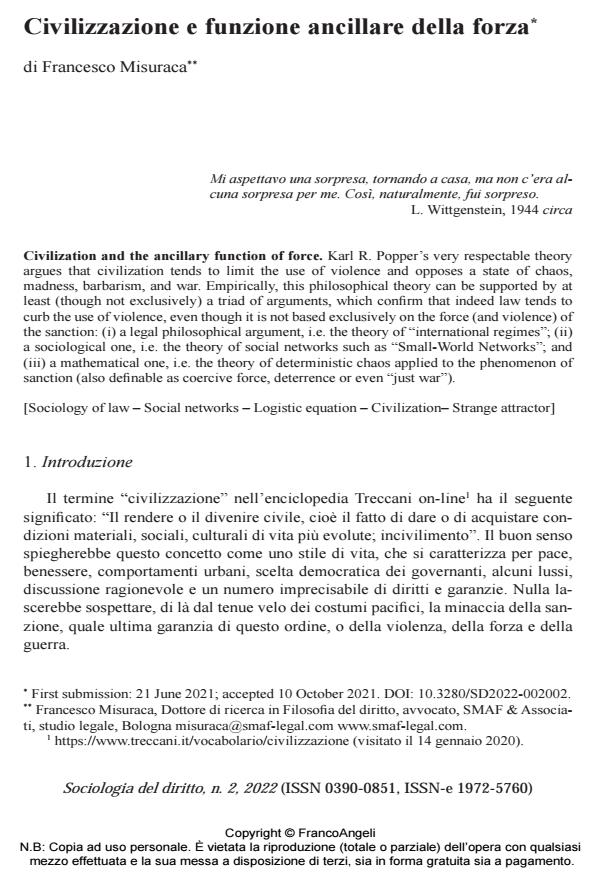Civilization and the ancillary function of force.
Journal title SOCIOLOGIA DEL DIRITTO
Author/s Francesco Misuraca
Publishing Year 2022 Issue 2022/2
Language Italian Pages 29 P. 42-70 File size 1019 KB
DOI 10.3280/SD2022-002002
DOI is like a bar code for intellectual property: to have more infomation
click here
Below, you can see the article first page
If you want to buy this article in PDF format, you can do it, following the instructions to buy download credits

FrancoAngeli is member of Publishers International Linking Association, Inc (PILA), a not-for-profit association which run the CrossRef service enabling links to and from online scholarly content.
Karl R. Popper’s very respectable theory argues that civilization tends to limit the use of violence and opposes a state of chaos, madness, barbarism, and war. Empirically, this philosophical theory can be supported by at least (though not exclusively) a triad of arguments, which confirm that indeed law tends to curb the use of violence, even though it is not based exclusively on the force (and violence) of the sanction: (i) a legal philosophical argument, i.e. the theory of "international regimes"; (ii) a sociological one, i.e. the theory of social networks such as "Small-World Networks"; and (iii) a mathematical one, i.e. the theory of deterministic chaos applied to the phenomenon of sanction (also definable as coercive force, deterrence or even "just war").
Keywords: Sociology of law - Social networks - Logistic equation - Civilization Strange attractor
Francesco Misuraca, Civilizzazione e funzione ancillare della forza in "SOCIOLOGIA DEL DIRITTO " 2/2022, pp 42-70, DOI: 10.3280/SD2022-002002